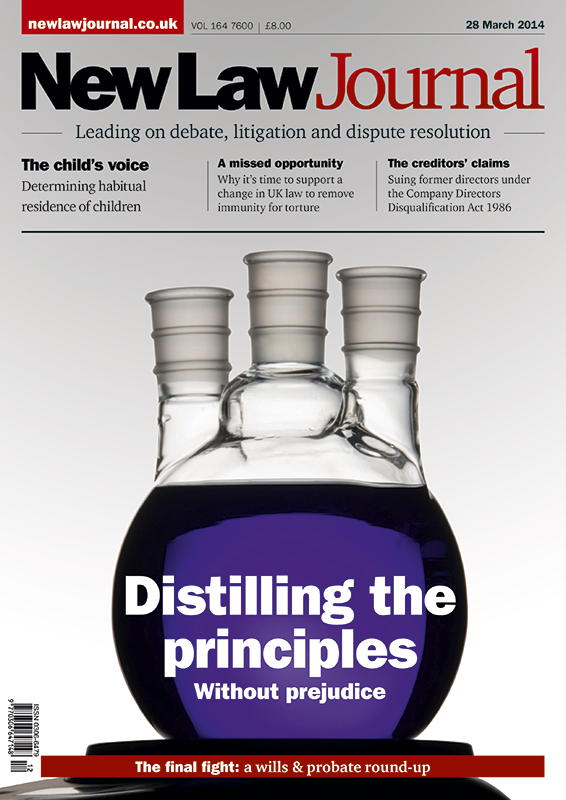
Roger Smith celebrates some seasonal highlights
Kirstie Gibson considers the approach taken by the court to determine the habitual residence of a child
Michael Salter & Chris Bryden re-examine the without prejudice rule
New developments in EU succession law by Adrian Jack
Administering an estate in the Republic of Ireland? Karl Dowling provides guidance
Paola Fudakowska & Henrietta Mason provide a wills & probate round-up
Simon Duncan continues to explore who has the right to sue former directors under s 15(1) of the Company Directors Disqualification Act 1986
Bhatia Best Ltd v Lord Chancellor [2014] EWHC 746 (QB), [2014] All ER (D) 186 (Mar)
Abbas v Shah [2014] EWHC 662 (QB), [2014] All ER (D) 202 (Mar)
Z v A government department and another C-363/12, [2014] All ER (D) 175 (Mar)
MOVERS & SHAKERS

Hugh James—Jonathan Askin
London corporate and commercial team announces partner appointment

Michelman Robinson—Daniel Burbeary
Firm names partner as London office managing partner

Kingsley Napley—Jonathan Grimes
Firm appoints new head of criminal litigation team






